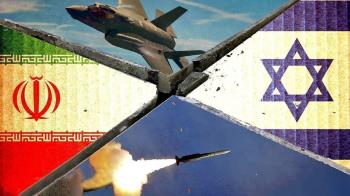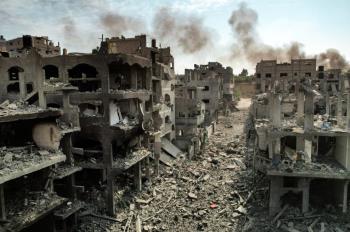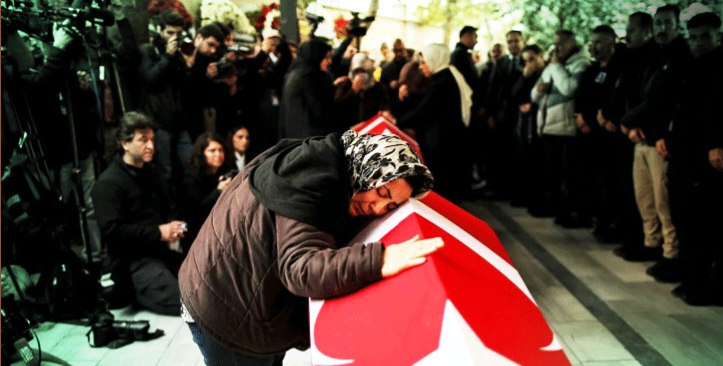Alwaght- On Sunday, Turkish media broke the news about a huge blast in Beyoglu neighborhood of Istanbul that took lives of 6 people and injured over 80. The Turkish government immediately labeled the bombing a “terrorist” action and pointed its fingers on the PKK group.
The Turkish Minister of Interior Suleyman Soylu asserted that “PKK terrorist group and its Syrian affiliate, PYD, were responsible for this terrorist attack.”
Soylu added that the planning and order for the blast came from the PKK and Syrian Democratic Forces (SDF) headquarters in Kobani in northern Syria.
The Kurdistan Workers Party (PKK) terrorist group in a statement denied any role in the operation, adding: “The people and democratic community know well that we do not target the civilians and disapprove of actions that target the citizens.”
The conflict of the narratives of the Turkish government and the PKK created room for various media speculations seeking clues that the government may eyes political advantages of the attack. Meanwhile, there can be reasonings that suggest both the government and the PKK benefit from this blast.
PKK’s shocktherapy
The PKK and its commanders in the Qandil mountains of Iraqi Kurdistan, who are the main suspects of the architecting the terrorist attacks in recent years, have thrown away thoughts of negotiations with the Turkish government for years and even disregard the advice of the imprisoned leader Abdullah Ocalan who calls for moving to confederalism and parliamentary participation.
The ringleaders of this terrorist group, who contrary to the poor infantry and low-ranking members have made huge fortunes thanks to illegal activities like drugs smuggling, human trafficking, arms trade, and illegal oil sales, see continuation of their wealth-producing network and mafia power in constant recruitment especially from the poor youths living in city outskirts and villages in the Turkish, Syrian, and Iraqi regions. These leaders include Cemil Bayik, Murat Karayilan, Duran Kalkan, Mustafa Karasu, Ali Heydar, Kaytan, Sabri Ok, Reza Altun, and others who have always lived under severe security protection and have never lost their power in any meeting of congress.
According to figures, the terrorist organization's recruitment rates have increasingly dropped in recent years, falling to bellow 4,000 from 7,000 to 10,000 per year. Likewise, the tendency to withdraw from the organization grew. In the past years, every year, between 300 and 500 teenagers and youths from Turkey, Europe, Iraq, and Syria were moved to Qandil mountains for training and completing the membership process. But now not only there is no vigilant watch of the borders, but also Kurdish youths have no interest to join the PKK. At the same time, the number of the dead members, deserters, and arrestees of the organization have been growing, and now the PKK leadership hopes to maintain the power in Kurdish-majority northern regions of Syria.
The PKK commanders deem the efforts of the leaders of the Kurdish parties in Turkey that stress the need for legal and peaceful activities in the political power the only way to meet the Kurdish demands as a blow to their mafia empire and position and thus always take benefit from conditions of conflict with the government— a reality that showed itself in the experience of 2013 when PKK commanders canceled the peace agreement with Ankara and announced return to arms and led to collapse of the pro-peace Kurdish coalition in the Turkish parliament.
Also, the Ukraine war and Turkey's unstable economic conditions are two developments that motivate PKK leaders, who are aware of the Turkish government's position, to organize terrorist operations without claiming responsibility to take revenge on Erdogan and involve him in further internal challenges.
Erdogan seeking fishing in troubled waters
The government of President Recep Tayyip Erdogan can exploit the terrorist attack politically in a variety of ways.
Almost an unprecedented alliance brought his opponents from six different parties together less than a year to the presidential election. Erdogan's opponents have determined to remove him and his ally and chairman of Nationalist Movement Party Devlet Bahçeli from the power in the 2023 elections, and the Peoples Democratic Party, as a political faction close to the PKK, is also part of this alliance.
But the PKK is so detested in the eyes of a majority of the Turkish people, and particularly the conservatives and nationalists, that no political leader dares to get any close to the organization's areas of control for the fear of losing social position and credit. Therefore, if in the new round of war between Turkey and PKK waves of negative public view of PKK spreads to the political parties and figures seeking peace with the PKK, there is a high possibility of end of the coalition of Erdogan's opponents.
A clear example of this fact can be seen in the words of Kemal Kilicdaroglu, one of the prominent leaders of the Republican People's Party. Earlier, he had commented on the participation and possible contribution of People Democratic Party in the future cabinet if the opposition camp wins: "We may give one or more ministries to the People's Democratic Party,” he said.
But shortly later, his ally and partner Meral Aksener, the leader of Good Party, in a high-ranking meeting of the coalition leaders came clean on the Kurdish party. She said: “We will not be where there is the Peoples Democratic Party. We would not sit with them at the same table with them.
Erdogan is well aware of this fact, and he is likely to intensify his verbal attacks on the opposition coalition in the coming days under the excuse of their coalition with the terrorists, exploiting the terrorist blast.
Indeed, this trend started months ago. In March, Turkish state news agency reported detention of 48 people, including local officials of a political party supporting the Kurds in the country. Among these detainees, according to Anadolu news agency, there were aides to an ex-mayor, treasurers of the Peoples Democratic Party ,and ex-members of city council representing the party.
Erdogan can also rise against the foreign rivals in the foreign policy. Currently, Turkey is at loggerheads with Western countries over support by Europe, especially Sweden and Finland, for PKK. Also, Turkey censures the American protection for Syrian Kurds, and while Syrian government calls for foreign withdrawal from the war-hit country, Erdogan insists on long-term military presence in Syria's north. Turkish military established its bases in parts of northern Iraq under the excuse of fighting PKK militants. Generally speaking, Ankara would exploit the terrorist blast to reject the opposition to Turkish military presence in Syria and Iraq.



























